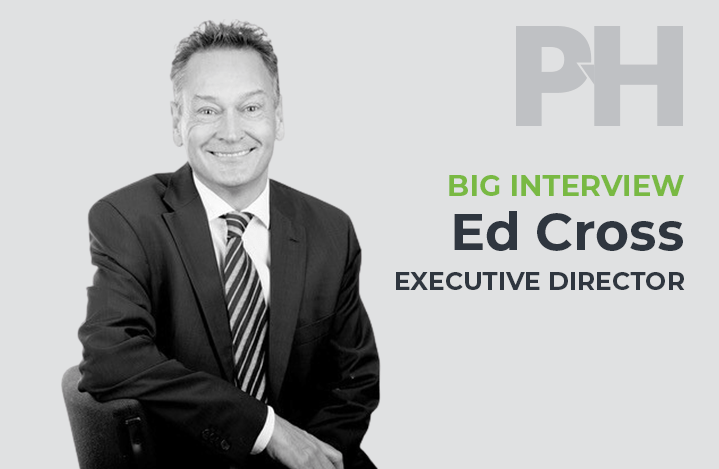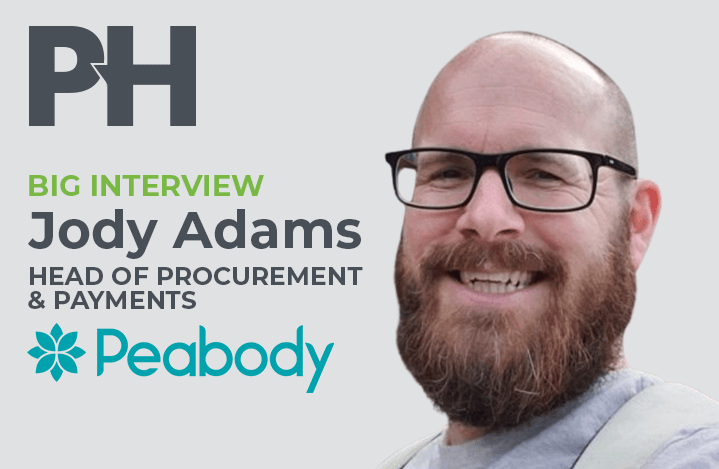He defines and drives business strategy, leading teams across different geographies and cultures and he has delivered procurement transformation (process, people, technology, organisation) and procurement cost reduction across direct and indirect categories, for a wide range of clients over the last 25 years.
His client work includes extensive experience across most major sectors including FMCG, Financial Services, Pharmaceuticals, Technology, Defence & Aerospace, Automotive, Manufacturing, Retail, Energy and Private Equity both in the UK and overseas.
For Procurement Heads‘ latest Big Interview, he spoke with David Hazeldine.
Tell us a bit about yourself and how you came to be working as an interim.
I am a bit of a change junkie, I moved into procurement as a 22-year-old out of university.
I sort of chose procurement as a career and then it grabbed me.
I didn’t necessarily have a huge amount of ambition at that age, I thought I might want to stay in academic life, but once I started working, I really loved it.
I loved procurement because of certain features of it in terms of the sort of outgoing nature of it but also the controlled nature.
Every day was different and dynamic but it also played to my numerical brain.
So, it picked me, but I really found out that I love change.
When I was in my early days at ICL, as an electronics buyer, I went on a first line management training course and they said that I was a shape and a plant!
In the management analysis, I was almost off the scale for two so I like to lead people, but also, I am quite creative and I felt that procurement lends itself to that.
You have to lead negotiations and small teams but also you need to be innovative so procurement met my natural requirement.
After electronic buying at ICL, I needed to do something different and the only opening I thought was appropriate for me was consultancy, so at 28 I joined Price Waterhouse as was and what grabbed me was the piece about change and transformation.
Fundamentally I don’t like each day to be the same, having worked in the corporate world I needed the vehicle of consulting and transformation activity with different clients to meet my drivers as an individual.
In terms of from then to my late 50s, where I am now, I broadly stayed in that same transformation space be it all in procurement.
I worked for Price Waterhouse for 6 or 7 years absolutely loved it, travelled the world, and led and solved programmes of work but always at the heart of what I was doing was procurement.
Then I moved from there and set up a company called Sharemax which was an e-sourcing provider when it all first happened (the eCommerce bubble).
I led that business with a bunch of colleagues from Price Waterhouse for about a year and a half until that bubble burst but it set me on the way to understanding procurement technology really well and it enabled me to think more broadly about running a business and that gave me a springboard.
I went from there to QP Group, a boutique, mid-market consultancy at the time for a couple of years then moved from there to Xchanging, a procurement outsourcing business, it was sort of really early days when I joined, we had about 20-30 people in procurement outsourcing, I ultimately led that business globally, I had about 600 staff around the world from Australia, India, United States etc. and led that to be number three in the world in procurement outsourcing.
I also happened to pick up HR outsourcing and ran that for a couple of years as well.
I got to the point where if I’m honest the role didn’t meet my personal needs anymore.
I had gone to being an Executive Director at the business but what I wasn’t doing was meeting suppliers or customers anymore and I didn’t really enjoy it if I am honest.
That made me think I needed to do something else – that was a sweet spot for me which is change and transformation.
What I didn’t mention at the outset is I really want to enjoy what I do.
It isn’t about the money or the reward, I want to do something I enjoy.
What I am able to do is take all of that procurement experience and bring that to the benefit of the clients I work with.
What is interim management and why would a business engage with it?
To me, interim comes in two forms, there is out an out replacement of a team member that is not currently at work, I would say that is a desk coverage type of work, somebody who comes in because you need to fill a gap.
Absolutely necessary, and it is a kind of day rate pay for the customer but they fill that gap until someone returns or they hire.
The second bit is around transformation and delivering a programme of work that you don’t necessarily have the skills inside your business to deliver.
There are lots of question marks around using interims as people say it would be cheaper to have an employee but the nature of work means that many things are not repetitive.
I’ll give you two examples of that one: if you are buying utilities and you are a relatively small business you really have to ask yourself a question about whether you need a permanent person in a role to manage that activity, it can be cheaper and simpler to bring somebody in who worked for a short period of time each year to help deliver a goal for you.
The other end of it is around enabling change and transformation to happen quickly and easily.
That is the bit of the market I like and is a skill set that often a business doesn’t have in that functional area.
If you were thinking about implementing a procurement technology solution, generally speaking, most businesses don’t have people there already that would understand that and are able to implement it.
To me, an interim comes in different forms but from my perspective it is about enabling a business to make a transformation fast and cost-effectively so that they do it quicker, smarter and without making mistakes.
What is the difference between interim and consultancy for you?
Consultancy to me is about transformation and change, it is understanding methods for change, and understanding how you enable an activity to happen successfully.
It is not the project management piece it is about creating a fire in the business that says we really need to do this.
How do I get people to buy into that and then how do I objectify, nurture and enable them to make that transformation happens.
When I was at Price Waterhouse, I was on my second assignment up at what become Raytheon Corporate jets up in Scotland and somebody said to me…what makes you different? And I said I don’t think anything makes me different to you, as a procurement person I think you know just as much about procurement as I do but what I do have is that transformation experience. But the other thing I said is that I don’t have any of the baggage of the organisation.
What you have to think when you’re bringing an interim in is that you are getting a cerain skillset but what you are also getting is someone who is disconnected from the business, there is no politics you can have bolder conversations with people as a consultant.
To some extent, people sometimes listen to you more.
That is the advantage really.
What type of engagements have you undertaken and where is your core skillset?
The two things that I think are core, I know a lot about procurement I have been doing it a long time, I think my skill set is in large-scale transformation.
Having a lot of balls in the air and managing all of those streams. So working with Ultra Electronics where I have just been working: I was helping them move from a de-centralised unco-ordinated procurement function to a centralised function.
That involves everything.
People, process, technology, source to contract system, the P2P environment etc.
So I think where my sweet spot is where there is lots of variabilities and activity stream to manage and bring together.
I think I am good at people management, I think I bring people together and I think people trust me and believe in me.
I have quite a lot of relationships with clients I have worked with that I have retained. Then the other one is when I was in my early consulting career and to some extent at ICL I got very interested in change management and all the things around that.
What motivates people and the like.
I work for a non-profit organisation called Be the Business currently where I mentor people who have small businesses or have a set of activities they are confounded by a little.
I think one of my strengths is around the people engagement and management piece, getting them on side and helping them with their thinking about what they are trying to do.
They are the key features really, the other one is that I am quite good at sourcing and I like doing it. I can’t lose that!
I worked with Brambles the palletisation company a few years ago and I worked with them on and off for a few years when I first worked with them they had a saving target to hit and the clock was ticking, it was the middle of the year and I said to the Head of Procurement there, Simon, give me a deal to do, I won’t say who I negotiated with other than that they were in consultancy. I like the cut and thrust of it.
What I haven’t mentioned is that I also like the intellectual side of negotiation, thinking about my levers, and my argument I like that side of it. It can be a bit unnerving but I like sourcing.
I have done some big deals, some multi-billion pound deals in my history and I have done it on both sides and have got certain confidence from that and knowing how things might turn out.
I rather quite like the sourcing bit.
If you get the right interim it is a brilliant opportunity to upskill the function, isn’t it?
It is sort of infectious isn’t it, people who are lively believe they can do stuff and it affects other people.
The amount of time I have heard people say they’ve tried it before but I say well it is the right thing to do and this is the reason we can make it happen. If you have an interim or consultant in your business they’ve done it loads of times before so they know how to make it work, they can talk to the team and say they’ve seen things but also say how to overcome them.
You, as a consultant, can help them and I think sometimes when people have external people in they listen a bit harder.
If you tell the senior manager you’ve done it before it has always worked and it can work in your business.
The naysayers step back a bit and you can use that support from the senior team to provide airplay to the team you’re working with to tell them it’s fine and you have convinced their leaders it will work and here is how you are going to do it.
Why do you think that?
I think there are a couple of factors, people like me, old/er people, have hung on to an old way of working 9-5 in the office etc.
I have gone way beyond the whole ‘people stay in the same job forever’ that whole solidity of working for a company the thing that our parents had, is just not in the mind of the people coming through now.
They don’t see the world like that, I have four children and their whole mindset added to covid means that they see the world of work differently.
It is more of a means to an end, they don’t see the point of going into an office.
They don’t see a job as a 10-year gig, they see it as a couple of years.
All of this drives towards the gig economy, and you can see the gig economy in so many avenues of life these days, whether it is the Amazon person who delivers your parcels – but it is a different principal and a lot of people talk very positively about that way of working.
People have sort of grabbed a different way of working, adding to that remote working when people go and live in different countries.
I think the world has changed, and the workforce doesn’t see a continuity in their employer, from a sociological perspective I think people’s thoughts have changed.
Some of those people will be in middle management and senior management positions and their viewpoint is changing.
The second bit of it, I think, is because people are letting go of the working in an office mantra I think it is opening up thoughts in their minds about where their workforce might come from.
Add that outsourcing globally, I think the whole dynamic is shifting so I was looking this morning at the stats for independent contractors, they have gone from 1.45 million people in 2020 to nearly 1.7 million people today.
That is 5% of the workforce is interim.
I imagine if I went back 10-20 years that would be 1% of the population, not 5%.
There is a mindset change in the employer and the employee and people are realising that some jobs don’t need to be permanent.
I used to have conversations with BAE systems – I have worked with them a lot in the past – they have a big interim workforce for engineering work, and they use a lot of interims.
I used to have a lot of conversations with their leadership team about what their plan was in terms of do they expand that, do they reduce it or whatever and why they have it and why they are not on fixed-term contracts and the view was we need that group of people and their new ideas, and we need the flexibility.
I think it will only grow because the mindset has changed.
The pace of change in business continues to get quicker, so using people with specific skill sets at specific times makes a lot of sense.
Tom Peters talked a lot about change management back in the 80s and 90s; he talks about businesses changing and the cycle of change and what they can cope with.
He said businesses were only able to deal with one big transformation every five years because it creates such turbulence in the business but that is with your existing workforce.
So if you are going to have a lot of change activity then you would think that you need to bring more external resources in more regularly to let them help you through that change and then let them go.






